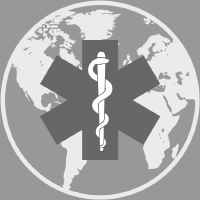Topic Menu
► Topic MenuTopic Editors


2. Department of Electronics and Computer Engineering, Ngee Ann Polytechnic, Singapore 599489, Singapore
3. Department of Biomedical Engineering, School of Science and Technology, SUSS University, Singapore 599494, Singapore
4. Department of Biomedical Informatics and Medical Engineering, Asia University, Taichung 41354, Taiwan
5. School of Business (Information Systems), Faculty of Business, Education, Law & Arts, University of Southern Queensland, Toowoomba, QLD, Australia
Long-Term Health Monitoring with Physiological Signals
Topic Information
Dear Colleagues,
The human body constantly gives out physiological signals, such as heat, electrical impulses from muscles, brain, and other organs. Since the dawn of modern medicine, these signals have been used to assess and, in some cases, determine the cause of health crisis. From these ancient roots, modern medicine has grown and diversified. However, the idea of crisis is still preserved. Like Hippocrates of Kos, modern medicine springs into action when a health crisis occurs. This event-driven setup is very resource efficient because health services are only used if there is reason to do so. However, sometimes a disease might have progressed beyond a point where effective treatment is available before symptoms trigger a diagnosis. In the past, resource efficiency by far outweighed the potential benefits of continuous physiological signal monitoring. However, in recent years, technological advances have meant that communication, storage, and processing resources have become almost omnipresent at a competitive price point. Having recognized the transformative nature of this technology, for this topic, entitled “Long-Term Health Monitoring with Physiological Signals”, we seek answers to the question: How can we use physiological signal measurements to translate the resource abundance into improved outcomes for patients? We invite papers that recognize the potential of gathering and analysing big physiological data for possible publication in one of the three journals: Diagnostics, International Journal of Environmental Research and Public Health, or Signals. A possible application area is the creation of disease-specific solutions where physiological signals are analysed with advanced artificial intelligence algorithms. Examples include atrial fibrillation detection and sleep monitoring in the home environment. Another area of interest is long-term physiological signal analysis for rehabilitation tracking and geriatric care.
Dr. Oliver Faust
Prof. Dr. U Rajendra Acharya
Topic Editors
Keywords
- physiological signals
- internet of medical things
- mobile health
- long term monitoring
- artificial intelligence
- hybrid medical decision support
- rehabilitation
- geriatric care
Participating Journals
| Journal Name | Impact Factor | CiteScore | Launched Year | First Decision (median) | APC |
|---|---|---|---|---|---|

Diagnostics
|
3.0 | 4.7 | 2011 | 20.5 Days | CHF 2600 |

International Journal of Environmental Research and Public Health
|
- | 7.3 | 2004 | 24.3 Days | CHF 2500 |

Signals
|
- | 3.2 | 2020 | 26.1 Days | CHF 1000 |

MDPI Topics is cooperating with Preprints.org and has built a direct connection between MDPI journals and Preprints.org. Authors are encouraged to enjoy the benefits by posting a preprint at Preprints.org prior to publication:
- Immediately share your ideas ahead of publication and establish your research priority;
- Protect your idea from being stolen with this time-stamped preprint article;
- Enhance the exposure and impact of your research;
- Receive feedback from your peers in advance;
- Have it indexed in Web of Science (Preprint Citation Index), Google Scholar, Crossref, SHARE, PrePubMed, Scilit and Europe PMC.

